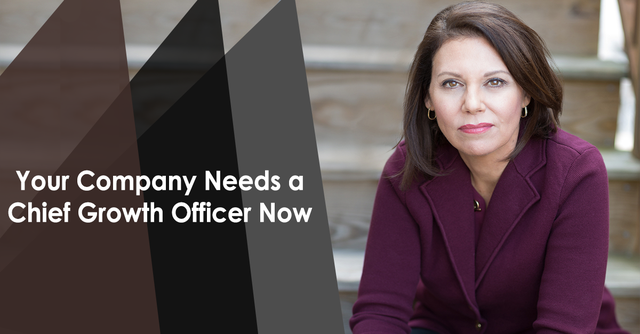
Many leaders complain about silos in the workplace. They rail against internal cultures of exclusivity that leave some team members in the dark about what is happening in different parts of the organization. They may even suggest that some team members are failing to connect the dots.
To be clear, silos are deeply problematic. When an organization's marketing team does not properly communicate with its sales and finance teams, companies may fail to convert prospects into clients, or they may experience unreliable revenue projections. But silos are much more damaging to a company's long-term success than leaving some people in the dark or missing a few opportunities. When left unaddressed, silos decrease morale, depress productivity, and adversely impact the bottom line.
The solution to silos and the many challenges they create is the chief growth officer (CGO). Unlike other C-suite positions, the CGO works across departments and programs to strengthen the interdependence of marketing, sales, finance, operations, and information systems. The CGO analyzes information from key departments, and then uses that information to anticipate and drive consumer demand.
For instance, when a CGO understands the marketing strategy and the efficiency of a company's marketing programs, meaning how much revenue the organization can recoup from its marketing efforts, the CGO is able to anticipate how many leads the sales team can expect to receive. The sales team, in turn, can forecast how much revenue each lead may generate, and then share that information with the finance team. The finance team can then make company-wide decisions such as which programs need to be scaled up or down to meet consumer demand. Information technology comes in at various points to provide the tools the sales, marketing, finance, and operations teams need to be efficient and productive. The CGO's job is to understand the work of all the company's different teams and to look for ways to maximize the output of each to move clients along the purchase cycle.
In essence, the CGO's goal is to position the company for long-term growth and profitability. The CGO is highly skilled and able to easily converse with multiple departments. The role is also able to help departments understand their interdependence, with the aim of improving communication between them.
While each C-suite role is highly specialized, a good CGO has either held multiple C-suite roles or intimately understands how each department works. For instance, the chief marketing officer is skilled in marketing, and the chief financial officer is an expert at budgeting, analytics, and financial forecasting. The CGO's skill set spans multiple diverse areas. Their training is not solely in the area of growth; it may include analytics, administration, marketing, finance, operations, sales, etc.
CGOs are also able to test and determine consumer preferences based on data, marketing, and sales history. If their research discovers changing preferences among client bases, CGOs can urge the company to innovate — and possibly abandon — what once worked to make room for what will work 5 to 10 years from now. If companies are unable to anticipate long-term needs, they will be unable to develop the product that will meet those needs. That's one of the reasons a CGO is so valuable.
The thing to remember about the CGO is that it is a role that is beneficial regardless of company size. Whether a company is a startup or one that employs tens of thousands of people, companies cannot lose when they dedicate resources to long-term growth.
Interdependence among departments and breaking down silos are not just functions of strong leadership at the top. These functions are the outcomes of careful planning and consistent interdepartmental communication. They are also outcomes of having a specific role that is dedicated to assessing data from each department and using that information to strengthen communications among departments.
Clara Conti is a serial entrepreneur, senior executive, and change agent. Connect with her on LinkedIn or Twitter (@ClaraConti).
The postings on this site are my own and don’t necessarily represent IBM’s positions, strategies or opinions.